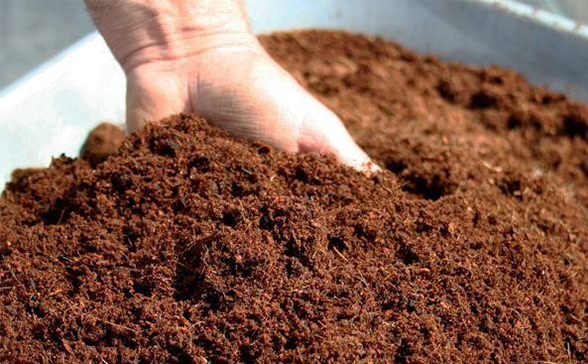Gardening enthusiasts and farmers alike have long relied on peat as a soil amendment. Peat is a type of soil that is formed by the accumulation of partially decomposed organic matter in waterlogged environments. It is highly valued for its ability to retain moisture and provide nutrients to plants. However, the extraction of peat from wetlands can have serious environmental consequences, including the destruction of habitats and the release of carbon dioxide into the atmosphere. As a result, many people are turning to coconut peat, also known as cocopeat or coir peat, as a sustainable alternative to traditional peat.

What is Coconut Peat?
Coconut peat is a byproduct of the coconut industry. It is made from the fibrous material found between the hard, internal shell and the outer coat of a coconut. This fibrous material is known as coir, and it is a renewable resource that is produced in large quantities in tropical countries like India, Sri Lanka, and the Philippines. Coir is traditionally used to make ropes, mats, and other products, but it can also be processed into a soil amendment known as coconut peat or coir pith.
How is Coconut Peat Made?
The process of making coconut peat begins with the collection of coconuts. The outer husk is removed, and the hard, internal shell is cracked open to reveal the white, fibrous material inside. This material is then washed, dried, and processed to remove any impurities. The resulting product is a fine, brown powder that is rich in nutrients and has excellent water-holding capacity.
What are the Benefits of Coconut Peat?
Coconut peat has several advantages over traditional peat. First and foremost, it is a renewable resource that is produced as a byproduct of the coconut industry. This means that it is a sustainable alternative to peat, which is extracted from wetlands and can take thousands of years to form. Additionally, coconut peat has excellent water-holding capacity, which means that it can help to retain moisture in soil and reduce the need for frequent watering. It is also rich in nutrients, including potassium, magnesium, and calcium, which can help to promote healthy plant growth.
Coconut peat is also pH-neutral, which means that it does not have the acidic properties of traditional peat. This is important because many plants prefer a slightly acidic soil, and traditional peat can lower the pH of soil over time. Coconut peat, on the other hand, will not alter the pH of soil, making it a versatile soil amendment that can be used for a wide variety of plants.
Finally, coconut peat is lightweight and easy to handle, which makes it an ideal soil amendment for container gardening. It can be used on its own or mixed with other soil amendments to create a custom blend that is tailored to the needs of specific plants.
How to Use Coconut Peat
Coconut peat can be used in a variety of ways to improve soil quality and promote healthy plant growth. Here are some of the most common uses for coconut peat:
- Soil Amendment: Coconut peat can be mixed with soil to improve its water-holding capacity and nutrient content. It is especially useful for plants that require a well-draining soil, such as succulents and cacti.
- Seed Starting: Coconut peat can be used as a growing medium for starting seeds. It provides a sterile, nutrient-rich environment that is ideal for germinating seeds.
- Mulch: Coconut peat can be used as a mulch to help retain moisture in soil and suppress weed growth. It can be spread around the base of plants or used as a top dressing for container plants.
- Composting: Coconut peat can be added to a compost pile to help balance the carbon-to-nitrogen ratio and speed up the composting process. It is especially useful for composting high-nitrogen materials like kitchen scraps and grass clippings.
Conclusion
Coconut peat is a sustainable alternative to traditional peat that offers several benefits to gardeners and farmers. It is a renewable resource that is produced as a byproduct of the coconut industry, and it has excellent water-holding capacity and nutrient content. It is also pH-neutral, lightweight, and easy to handle, making it an ideal soil amendment for container gardening. Whether you are starting seeds, amending soil, or mulching plants, coconut peat is a versatile and eco-friendly choice that can help to promote healthy plant growth while reducing your environmental impact.
